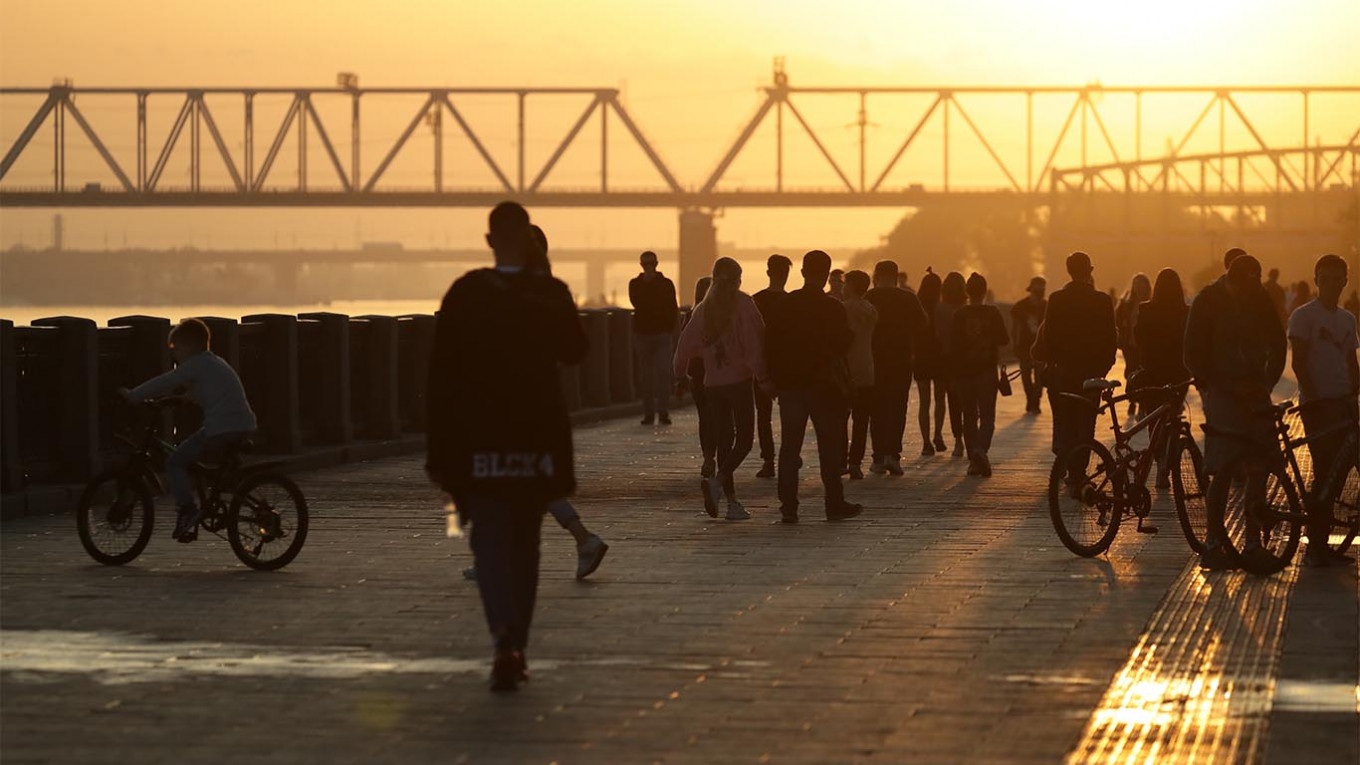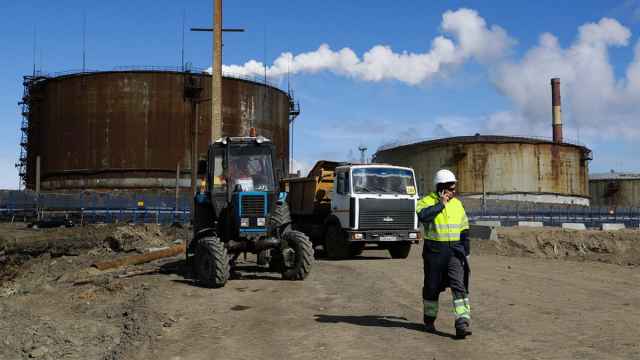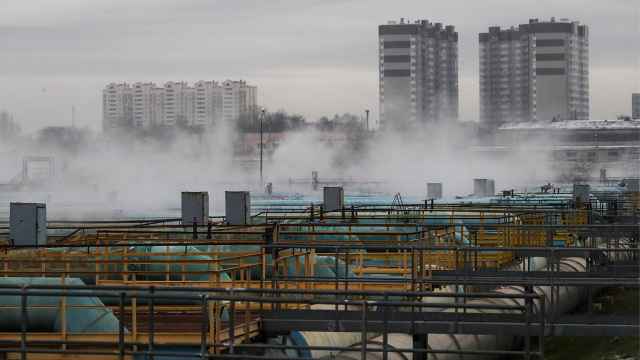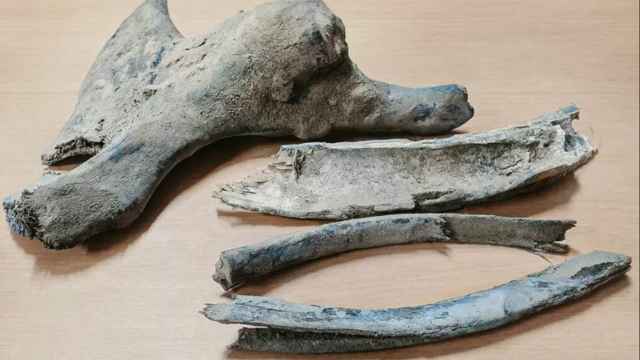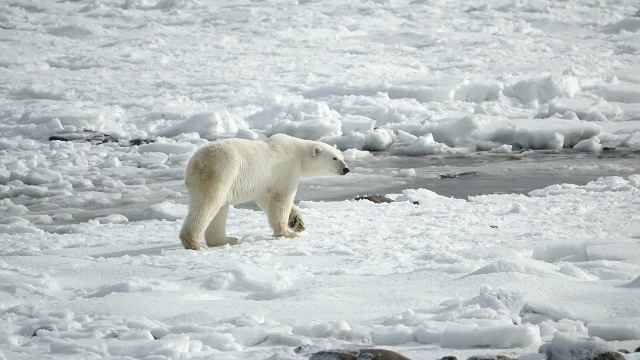The Russian Arctic set record temperatures in June that sparked abnormal tundra fires, the head of Russia's weather service said Tuesday, blaming climate change for the "fantastical" anomalies.
Russia's northern territories, including parts of the republic of Sakha which borders the Arctic Ocean, have faced a heat wave in recent weeks, and villages in the remote tundra are battling wildfires with some districts declaring a state of emergency.
"We had extremely anomalous weather" in June, Roman Vilfand said, adding that "previous records were broken easily."
He noted one record in particular in the Arctic town of Verkhoyansk, where temperatures reached 38 degrees Celsius (100 degrees Fahrenheit) on June 17.
"That is a fantastical degree," Vilfand said at a press conference, noting that Verkhoyansk previously set the record for the lowest temperature with minus 67.8 degrees Celsius.
Vilfand said the trend of hotter temperatures and sunnier weather was caused by climate change and a change in atmospheric circulation, with polar anticyclones — phenomena that bring sunny skies — becoming more frequent.
The lack of clouds, in turn, causes the ground to heat up during the Arctic summer, he said.
Previously "meteorologists didn't note fire hazardous situations in the polar regions often," he said, but this is now changing due to these patterns.
"It's an astonishing situation. Anticyclones happen more and more often and you can never predict where they are going to occur," he said.
"This is the most important problem of climate change and a result of climate change."
The resulting fires contribute to the cycle of warming since ash darkens the surface of ice that previously reflected the sun, causing it to melt instead, Vilfand said.
Russia is warming 2.5 times faster than the rest of the world due to its vast Arctic territories.
Though President Vladimir Putin has noted the benefits of warmer temperatures opening up transportation routes and energy resources, climate change is a huge hazard for the country's infrastructure built on permafrost.
Russia also struggles with wildfires in its remote taiga every summer as well as catastrophic floods.
A Message from The Moscow Times:
Dear readers,
We are facing unprecedented challenges. Russia's Prosecutor General's Office has designated The Moscow Times as an "undesirable" organization, criminalizing our work and putting our staff at risk of prosecution. This follows our earlier unjust labeling as a "foreign agent."
These actions are direct attempts to silence independent journalism in Russia. The authorities claim our work "discredits the decisions of the Russian leadership." We see things differently: we strive to provide accurate, unbiased reporting on Russia.
We, the journalists of The Moscow Times, refuse to be silenced. But to continue our work, we need your help.
Your support, no matter how small, makes a world of difference. If you can, please support us monthly starting from just $2. It's quick to set up, and every contribution makes a significant impact.
By supporting The Moscow Times, you're defending open, independent journalism in the face of repression. Thank you for standing with us.
Remind me later.


